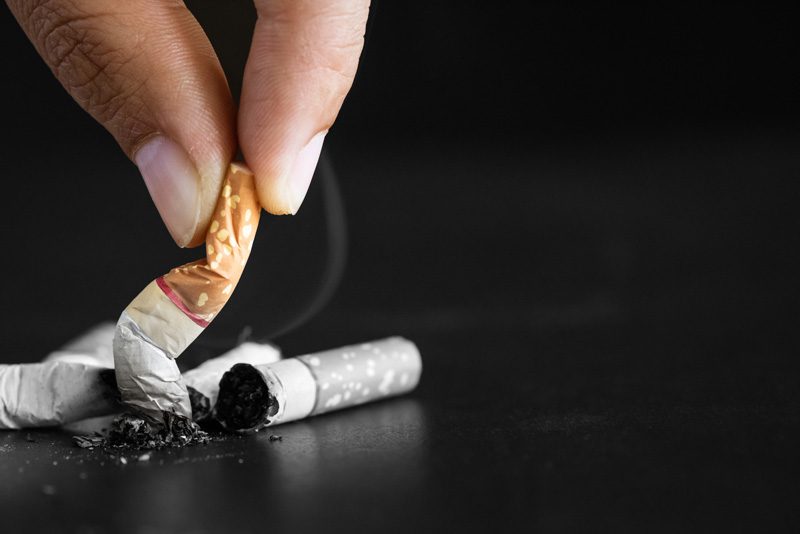Smoking & Treatment
As you are preparing to enter a residential treatment center to reclaim your sobriety and your life, you may find yourself wondering just what you should bring with you. That’s why French Creek Recovery Center has posted the answers to a variety of frequently asked questions.
But as you look over the list of things to bring, you may well be surprised by one item we have included. Alone with insurance cards, comfortable clothes, deodorant, sunscreen, pictures of your loved one, and more, you will notice this suggestion:
A 30-day supply of your preferred tobacco product if you use one.
Now, if you are a smoker or use chewing tobacco, you may be relieved to see this item on our list. But you might also be confused.
After all, you are entering residential treatment to get help overcoming your dependence on addictive substances—and nicotine, which is found in tobacco products, is most definitely an addictive substance. Not only that, but we know that tobacco use has a deleterious effect on your overall health. So why in the world would we invite you to bring “your preferred tobacco product” to treatment?
The Benefits of Smoking in Treatment
It is not too often that anyone says “benefits” and “smoking” in the same breath. But the truth is that smoking while in treatment can be helpful in a few ways. Having access to nicotine seems to help some individuals better manage cravings for other drugs or for alcohol. Smoking also seems to help many people manage their mental health a bit more effectively so that they are less likely to feel the full weight of symptoms of depression, anxiety, or ongoing irritability.
The Downsides Are Significant
Still and all, in a perfect world you would give up smoking (or other forms of tobacco) as soon as you can—both because you should avoid addictive chemicals when you are in recovery and because the health impacts can be so dire. In addition, in today’s society smokers are often isolated from others, and this can lead to a sense of disconnection that works against your ability to maintain your sobriety.
Let’s take a closer look at these issues.
- Nicotine is addictive: As with so many drugs, nicotine can be very difficult to give up. Attempts to quit smoking are often derailed by strong cravings and other signs of withdrawal. But there are effective ways to manage the withdrawal symptoms so you can put down the tobacco for good. Here’s the truth: people in recovery should do everything they can to avoid continued use of an addictive substance like nicotine.
- Tobacco use undermines your health (and potentially the health of those around you) in serious ways: The health dangers of smoking are extremely well documented, but as a reminder, the negative effects of smoking include (but are certainly not limited to):
- Significant lung damage
- The development of various serious diseases—including cancer
- Circulation issues that are problematic in and of themselves but can also make other conditions worse
- Impacts that can make you look—and feel—significantly older than you are
- Smokers can find themselves isolated from others: There was a time when smokers could light up just about anywhere at all. Eventually, as more people came to understand the dangers of smoking, changes were made—like establishing smoking and nonsmoking sections in restaurants. Eventually, however, these compromises were replaced with bans on smoking in most indoor and public spaces. And that means that smokers frequently have to excuse themselves from social situations to take a smoke break. These seemingly small interruptions add up, and can make it harder to maintain the kind of relationships that support your sobriety.
When It Comes to Substance Use Disorders, Where There’s Smoke There’s Fire
At French Creek Recovery Center, we know all too well that many people put off getting help for a substance use disorder because they convince themselves that things are just not that bad. But as the old saying goes, “where there’s smoke, there’s fire”—which in this case means that if you have an inkling that your substance use is headed in a bad direction, it almost certainly is. And the time to get help is right away.
We can help you recover your sobriety via a personalized treatment program grounded in expertise and compassion. Our goal is to help you start your recovery journey with the resources and confidence necessary to maintain your sobriety over time. That includes helping you give up smoking and other tobacco use so that you can live a healthier life free from addictive substances.

